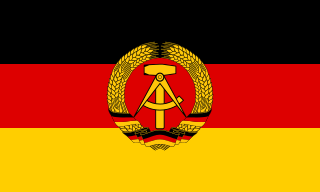
Canada was the host nation for the 1988 Winter Olympics in Calgary. It was the first time that Canada had hosted the Winter Olympic Games, and second time overall, after the 1976 Summer Olympics in Montreal. Vancouver would eventually host the 2010 Winter Olympics which makes it the second city in Canada to host the Winter Olympics and the third overall.

Norway was the host nation for the 1994 Winter Olympics in Lillehammer. It was the second time that Norway had hosted the Winter Olympic Games, after the 1952 Games in Oslo. In 1994, Norway finished second in the medal ranking to Russia, with strong results in the skiing events.

Norway competed at the 2002 Winter Olympics in Salt Lake City, United States. The nation enjoyed its best ever results in gold medals, most notably in the biathlon events, when Ole Einar Bjørndalen swept all four gold medals.

Finland competed at the 2002 Winter Olympics in Salt Lake City, Utah, United States. The nation won all Nordic combined events, most notably Samppa Lajunen, in the individual events.

The Unified Team at the 1992 Winter Olympics in Albertville was a joint team consisting of five of the fifteen former Soviet republics: Russia, Ukraine, Kazakhstan, Belarus and Uzbekistan that made a decision to collaborate and created a united team. The Unified Team's only other appearance was at the 1992 Summer Olympics in Barcelona. It competed under the IOC country code EUN.

The Union of Soviet Socialist Republics competed at the 1988 Winter Olympics in Calgary, Alberta, Canada. It would be the last Winter Olympic Games before the dissolution of the USSR in 1991. Six of the former Soviet republics would compete together as the Unified Team at the 1992 Winter Olympics, and each republic would be independently represented at subsequent Games.

France competed at the 1988 Winter Olympics in Calgary, Alberta, Canada. Frank Piccard won France's first Winter Olympic gold medal for 20 years.

France was the host nation for the 1992 Winter Olympics in Albertville. It was the third time that France had hosted the Winter Olympic Games, and the fifth time overall.

Norway competed at the 1992 Winter Olympics in Albertville, France.

Austria competed at the 1988 Winter Olympics in Calgary, Alberta, Canada.

Austria competed at the 1992 Winter Olympics in Albertville, France.

Switzerland competed at the 1988 Winter Olympics in Calgary, Alberta, Canada.

Switzerland competed at the 1992 Winter Olympics in Albertville, France. Nicolas Bochatay, a member of the delegation, was to represent the country in the speed skiing finals, but he was killed in an accident on the morning of the day of the competition he was to compete in.

Finland competed at the 1992 Winter Olympics in Albertville, France.

Finland competed at the 1998 Winter Olympics in Nagano, Japan.

East Germany competed at the Winter Olympic Games for the last time at the 1988 Winter Olympics in Calgary, Alberta, Canada. Following German reunification in 1990, a single German team would compete in the 1992 Winter Olympics.

West Germany competed at the Winter Olympic Games for the last time as a separate nation at the 1988 Winter Olympics in Calgary, Alberta, Canada. Following German reunification in 1990, a single German team would compete in the 1992 Winter Olympics.

Germany competed at the 1992 Winter Olympics in Albertville, France. It was the first time that the nation had competed at the Olympic Games following reunification in 1990. Previously, West Germany and East Germany had sent independent teams to the Games.

Japan competed at the 1988 Winter Olympics in Calgary, Alberta, Canada.

Norway competed at the 1988 Winter Olympics in Calgary, Alberta, Canada. This was the first and only time at the Winter Olympics that Norway failed to win a gold medal.











